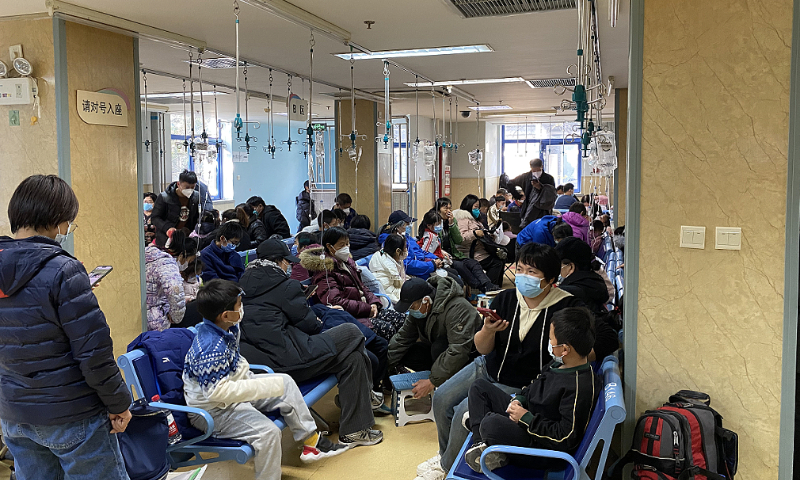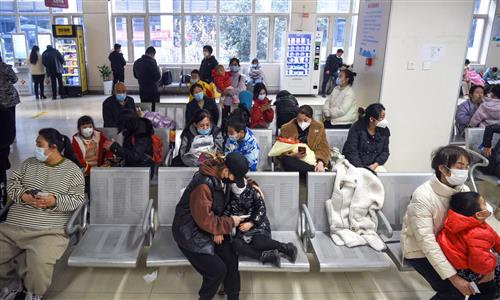
Children with cough and fever are receiving intravenous therapy at Beijing Children's Hospital on November 27, 2023. Photo: VCG
Beijing is currently experiencing a situation in which respiratory infectious diseases such as influenza and COVID-19 are coexisting, with the prevalence of the influenza virus showing a slight downward trend recently, the Beijing center for disease control and prevention said on Thursday.
In the recent week, the positivity rate of influenza viruses in cases at sentinel hospitals in Beijing reached 30.3 percent, a slightly decrease from the previous week's 31.4 percent. The predominant strain circulating is influenza B virus, said the municipal center.
Meanwhile, the positivity rate for COVID-19 in flu-like cases at sentinel hospitals has increased to 21.1 percent in the past week, with the main circulating strain being the JN.1 variant, according to the center.
As most residents return to work and students prepare to go back to school in Beijing, it is important to be aware of the high season for respiratory infectious diseases in the winter and spring. Schools, childcare institutions, and nursing homes are at increased risk due to their relatively dense crowding. Beijing's disease control and prevention center has advised citizens and institutions to monitor their health closely, to take precautions, and stay home if feeling unwell.
During winter and spring, it is important to stay aware of vaccination options to prevent respiratory diseases. In addition to the required vaccines, experts have advised the public to consider getting vaccinated for COVID-19, influenza and others.
Zhuang Shilihe, a medical expert based in Guangzhou, South China's Guangdong Province, suggested that high-risk individuals who are more prone to recurrent infections should consider getting vaccinated. For example, those with immunodeficiencies are at higher risk of experiencing recurrent infections when facing viruses such as COVID-19, influenza, and other pathogens, Zhuang told the Global Times on Thursday.
Also, due to the impact of the seasonal and epidemic diseases, the clinical demand for some centrally procured drugs such as azithromycin injections has surged in a short period of time across the country, according to the authorities.
The medical insurance departments are closely monitoring supply levels and urging companies to meet their distribution responsibilities. Medical institutions are being encouraged to report supply problems in a timely manner and to use backup supplies or non-centrally procured products if needed. Proactive procurement strategies are being implemented to ensure timely delivery, the authorities said.
Global Times


